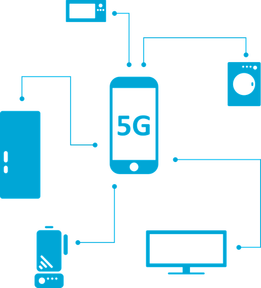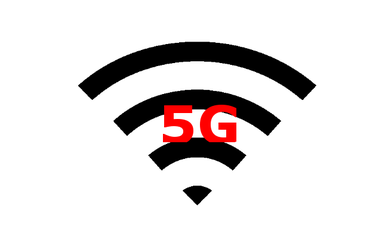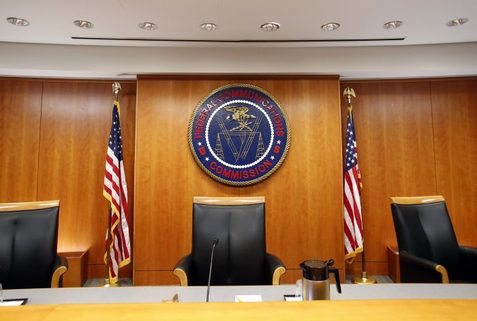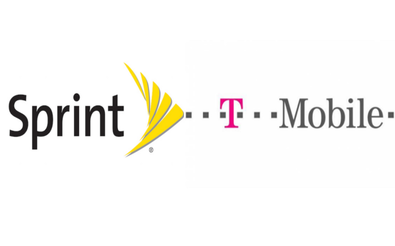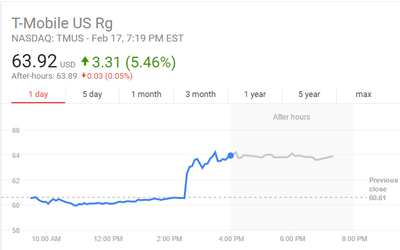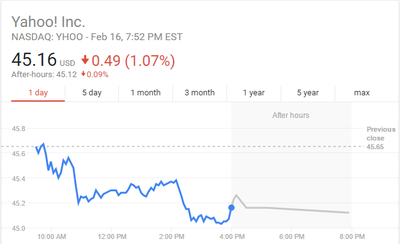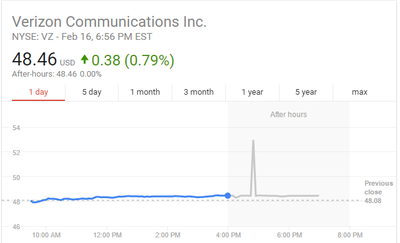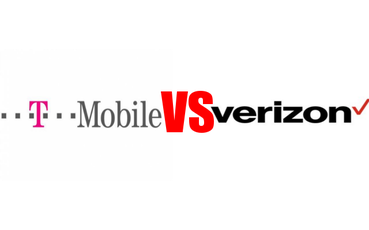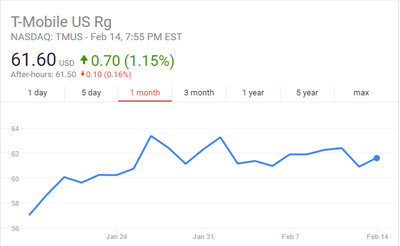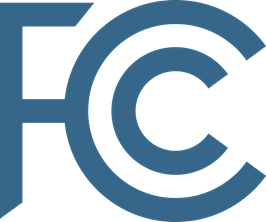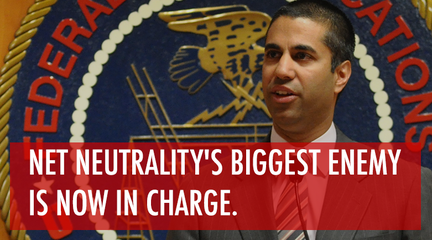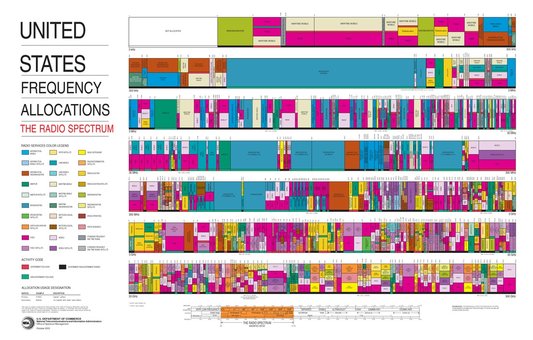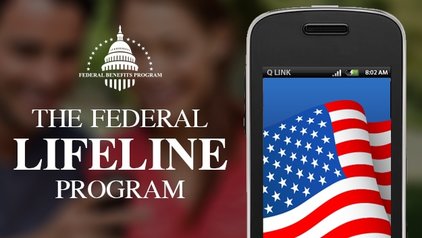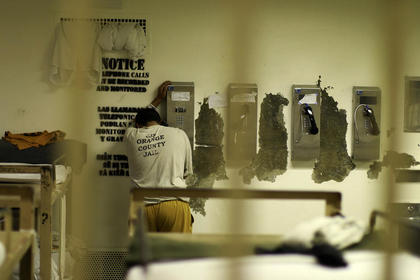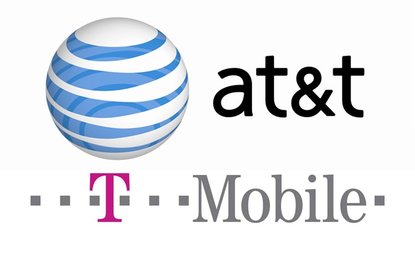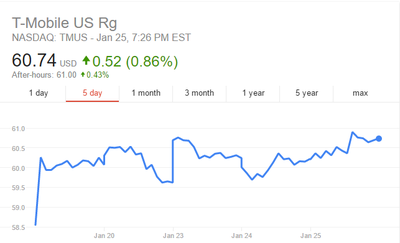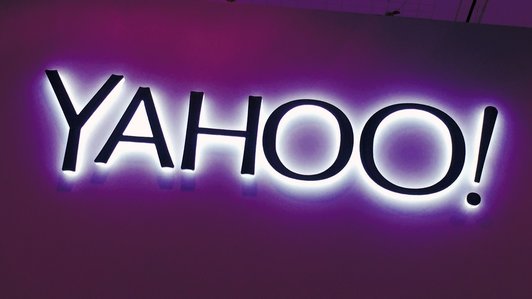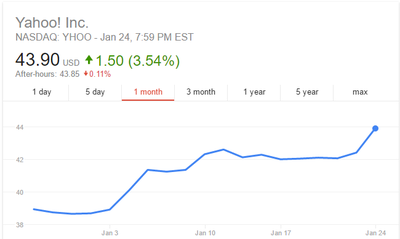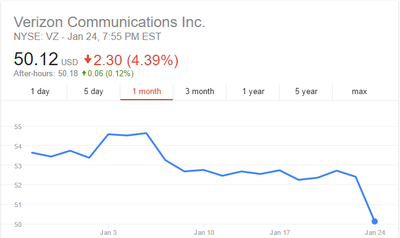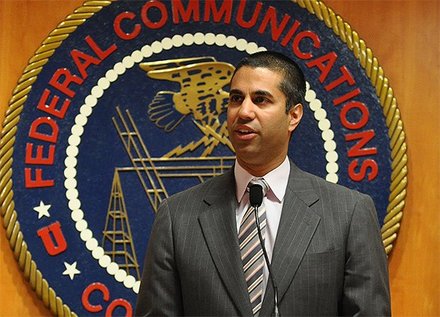|
5G, the fifth generation of wireless technology. What makes it better than 4G LTE, do we really need 5G, and what about the health risks of this new technology?
4G LTE (Long Term Evolution) has been the upgraded version of 4G for a while now, 4G LTE was pretty much the first "version" of 5G. 4G LTE offers faster speeds and better security than 4G. Per PCMag, 5G's networks will consist of small cells and could be as small as home routers. According to that article, 5G networks should not consist of large towers. The idea is, the more cells you have the more data you can get on the network. What's worse, large cell towers here and there, or a small area with multiple cells closer to each other? AT&T claims they're going to be the first ones to really implement this technology and offer it to their customers. According to PCMag, they believe AT&T will roll out 5G using millimeter wave technology, which can't reach very far, but is highly effective at the distances it can reach. This is why 5G networks will be placed closed to each other, and to be extremely effective and efficient, there will have to be a lot of these small cell networks around. According to Newsmax, 5G networks will be put onto street lights, buildings, signs, pretty much anywhere possible. There still needs to be infrastructure to support all of this, but that's only half the battle of implementing 5G. ISPs like AT&T have to go not only the states, but the counties and cities, they plan to implement 5G in. It's like fiber networks, you need to obtain approval from not just the feds and the states, but localities too. So, how do you feel about small cell 5G networks being placed literally all over town? That's the plan here. There will no doubt be a spike in radiation in the areas where they'll implement these networks, that's just a given. If you have so many of these small cell networks in one area, radiation will increase due to the concentration of these small cell networks. The industry wants to put this technology everywhere; from homes, to cars, to offices, to schools, to beaches, everywhere. The FCC certainly isn't standing in the way. The Los Angeles Times ran a story on the health hazards of 5G technology. In that story, they said male rats had a slight increase of tumor growths. These rats were involved in a long term high radiation test, but it shows the risks are there. 5G will expose humans to a significant increase in radiation, especially if it's implemented in every setting of human life, like the industry plans. In that same Los Angeles Times article, Leeka Kheifets, a epidemiology professor at UCLA, said "I don't think it's clear that there are health risks, but it's also not clear that there are no health risks." Honestly, 5G could have been designed better, and to be honest, there isn't anything wrong with 4G LTE. 4G LTE is fast enough, the only real perk of 5G is you'll be able to use more data at a slightly faster speed than 4G LTE. Ask yourself, do you really need that? Wireless connection speed is pretty darn fast as it is. Also, with these small cell networks everywhere, it can greatly increase the risk of cyber attacks and hacking. A bad actor could take out an entire city's network by hacking into or taking out a group of these small cell networks, and they way there are to be implemented, it won't take as much effort as a 4G network. Alex Jones has been very passionate about noting the health hazards and other risks associated with 5G networks. He has been long time friends with Dr. Edward Group. Group founded the Global Healing Center. Group himself is warning about 5G technology, and Alex had him on Infowars to talk about it:
Infowars has really been leading the charge on warning about the health risks associated with 5G networks. Dr. Group is also on board with Alex and Infowars on the potential health risks of 5G. This isn't some wacky conspiracy folks, it's real.
Here is another Infowars report on 5G health risks, this time by Le Ann McAdoo:
Sadly, the wireless industry is too far invested in this 5G technology for it be stopped or reconsidered. The industry wants it, the government wants it, businesses want it, but do average citizens want it? It doesn't seem to be widely talked about by regular folks, that's for sure.
Hopefully the wireless industry and government recognizes these health risks and does reconsider the technology it self, but don't hold your breath on it. Big cities and the government will get it first, the rural areas will be the last to get it more than likely. Businesses, cars, and planes though? No matter where you live, this technology will find you.
0 Comments
Mobile network generations, are they even that popular anymore? It used to be all the rage when 2G went to 3G, then 3G went to 4G LTE. Coming soon to the USA is the 5th generation of mobile networks, 5G, and the wireless industry is gearing up for deployment.
Numerous companies are working hard to develop and deploy, in full scale, 5G networks. Verizon, Samsung, Qualcomm, Intel, AT&T, T-Mobile, and Sprint just to name some main ones are creating network infrastructure, chips, and modems in the name of 5G. 5G will be faster and more efficient than 4G, data speeds are expected to hit 20GB/s and 1 millisecond latency according to Mirror. Also according to that same Mirror article, Samsung unveiled their 5G technologies they have so far as well as their 5G plans for the future. Per Reuters, Verizon is planning to release 5G to 11 US cities by mid 2017. According to that article, Verizon is dubbing this as "pre-commerical services" for consumers. The 11 cities are as followed, per TechRepublic:
No Pittsburgh on that list, but oh well. According to the Reuters article mentioned above, AT&T plans to roll out 5G testing in Austin, TX this year. Here is a video from Bloomberg of Deutsche Telekom's (T-Mobile's owner) CEO explaining 5G and DT's plans:
Intel and Qualcomm are for sure in this mix. The chip makers have been researching and developing 5G hardware and are already unveiling 5G tech. Qualcomm came through first with the unveiling of the Snapdragon X20 modem back in October of 2016. Intel unveiled their own 5G modem at CES 2017 called the XMM 7560, all this according to Engadget.
Qualcomm has also created a chip for smartphone use called the Snapdragon X50 according to Cnet. It's no question 5G is getting close, but it likely won't be fully deployed until 2018/2019. According to PC World, T-Mobile USA's Chief Technology Officer Neville Ray stated that 5G is simply not ready yet. The senior director of technical marketing for Qualcomm, Rasmus Hellberg, stated consumers will get an "elevated broadband experience in 2019". It's very clear, with the rise of the Internet of Things and its inevitable takeover of our daily lives, that we need a reliable and fast network to handle it all. Business Insider predicts that by 2020 there will be 34 billion devices connected to the Internet, and most will be wireless. That prediction right there shows why we need mobile networks like what 5G is set to be. We need fast, efficient, and reliable wireless networks to handle all the data transfers, calls, and traffic that 34 billion plus devices can create. Everyone should be excited about this, soon we'll have wireless Internet that is just as fast as hardwired Internet, and we'll be able to have more smart devices enter our daily lives and make life just a bit easier and entertaining. Consumers, business, and investors can and should all benefit from 5G deployment. The FCC will be a big winner from spectrum auctions when 5G starts widespread full deployment. 5G needs spectrum to operate, and it'll need a lot of it by 2019 to reach its goal and the FCC is going to make some serious cash auctioning it off. 5G won't be here tomorrow, but it will be here sooner rather than later.
Every 2 weeks Pulsar will give an update on what the FCC is up to. Since the last update the FCC has been busy and is making some moves.
Have you ever wondered why our smartphones don't come stock with an FM Radio app? Have you ever wondered why you have to download apps like iHeartRadio and Pandora that are connected to the Internet? Well that's because mostly all smartphones have their FM transmitters turned off. That's right, this all per Tech Times, and FCC chairman Ajit Pai wants to do something about it. The FCC is unable to force carriers/manufacturers to turn the FM transmitters on, but Pai is recommending to them that they do it. Doesn't it make sense to turn an FM transmitter on if it's going to be part of the phone? Also you wouldn't have to download Internet streaming radio apps either, you could pick up your local radio stations on your smartphone. The only downside to this is, well, traditional FM radio isn't all that great anymore thanks to Internet radio apps and satellite radio. People want many songs and the songs they like. According to that same Tech Times article, only 44% of smartphones have their FM transmitters activated. According to Slash Gear, the some of the current manufacturers (selling in US) that have their FM transmitters turned on are: HTC, LG, and Samsung. Samsung by far the largest out of the three. The FCC is planning to solve the digital divide in rural areas. According to The American Genius, The FCC has a few possibilities on the table to solve this issue. Gigabit Opportunity Zones are one of them, which give incentives to broadband providers that expand service to rural areas, and tax credits for entrepreneurs that set up networks themselves. Pai also wants to bring the wireless industry into rural areas. Here is Ajit Pai himself giving a brief overview, onFox Business, of what he wants to do and why
It's clear Pai is nothing more than a pro-consumer and pro-business FCC chairman, and that is exactly what the United States needs, especially with the pro-business Trump administration.
Pai appeared to get into a little hot water though, recently he "praised" Amazon on their Prime Now service. Pai tweeted out to @amazonprimenow after being very satisfied with the overall service, and this allegedly puts Pai in a Kellyanne Conway situation. All this according to Gizmodo, the tweet by Pai violated the same rule from the Code of Federal Regulations that Kellyanne Conway did when she promoted Ivanka Trump's brand. Which is totally an organized effort by retailers to boycott Trump brands, but now Ivanka's brand is number 1 on, guess what, Amazon. The Gizmodo article did not state Pai will be disciplined for this or not. We'll end it with the spectrum auction going on, again the FCC auctions off parts of radio spectrum so we can all enjoy our phones, computers, TVs, radio, and many other digital devices. The auction will officially end on March 30th, and it looks as if it will close with a bid total close to $20 billion, all according to Broadcasting & Cable. The FCC and its chariman Ajit Pai are gearing up to make moves and deregulate the US telecommunications industry. Business and consumers alike should all be excited for what will come out of all of this. We should expect a more business friendly environment which in turn will lead to new products and services that transfers into lower prices for the consumer. The FCC may finally bridge the digital divide, and we have the companies that can do the job. Trump's tax plans and business friendly tone is and has been incentivizing companies to do business and build factories in the US. SoftBank, Sprint's owner, is investing $50 billion in the US. Trump and Pai can make the telecom and tech industries boom, and it seems that has already started.
T-Mobile has been making the headlines on a weekly basis it seems, and this week they brought Sprint along with them. Though it was really Sprint's majority owner SoftBank who brought the news, and this really reflects how the tables have turned in the wireless carrier world.
Multiple sources citing Reuters reporting that SoftBank may cede control of Sprint to Deutsche Telekom who owns T-Mobile. SoftBank has not yet discussed anything with Deustche Telekom due to a FCC rule prohibiting discussions between competitors during spectrum auctions, which one is currently going on. This is all per Fox Business Once the auction ends expect talks to ramp up. This potential merger could create a "super-carrier", but due to that possibility alone, regulators are bound to fight this merger hard. The potential merger may be a copy of the failed merger of Sprint and T-Mobile back in 2014. In 2014 Sprint, well SoftBank, had a $32 billion deal on the table with T-Mobile and all they need was government approval, and they couldn't get it. The FCC wasn't into that much of consolidation, and so Sprint walked away from the deal, and Sprint fired CEO Dan Hesse who was succeeded by current Sprint CEO Marcelo Claure. This all according to Forbes. Here is a video from Bloomberg on the potential deal:
This deal would be huge no doubt, and it's funny how the tables have turned. In 2014 it was Sprint wanting to buy T-Mobile, now it's SoftBank wanting to cede control of Sprint to Deutsche Telekom who owns T-Mobile. It's only logical that T-Mobile and Sprint merge, and since Sprint is being ceded to T-Mobile's owner, Sprint is on the losing end. Now Sprint wouldn't fully go away, but employees will and branding.
The deal does have potential for good though, this would create a direct competitor to Verizon and AT&T and may even stir more innovation and competition within the industry, because it really would be more of a level playing field. T-Mobile is knocking on both Verizon's and AT&T's doors after blowing through Sprint's, and if this deal goes through it will be a Cinderella story for the ages. Why? Because T-Mobile use to be the smallest of the 4 major US carriers, now it has the chance to become 2nd or even 1st. However, this merger may have the chance to do some bad, and the FCC will pick that up. The potential merger would be a big one and create a worse oligopoly within the industry. How so? With T-Mobile eliminating Sprint for good there may not be incentive to go after AT&T and Verizon because T-Mobile will be just as big, so maybe the price war will die and companies will focus on themselves and not rivals. T-Mobile is really responsible, AT&T too, for the current price war and competition going on within the industry. According to Fox Business, Deutsche Telekom could receive offers from Comcast and DISH for T-Mobile. DISH Network is the more likely one, honestly it would be the best choice for T-Mobile, Sprint, and even Verizon. AT&T already scooped up DirecTV, DISH Network has Sling TV (Internet Pay TV), Verizon is getting into Internet TV, and it's clear the future of TV is shifting towards subscription based Internet TV. DISH Network would be a great asset and/or partner with the remaining three carriers, and T-Mobile sounds like they'd be the ones to do it. Comcast however could easily scoop up T-Mobile and become a new and direct competitor to Verizon, AT&T, and Sprint. Sprint would really have to merge with someone then. Overall, big things are happening within the telecom industry, and big things are going to continue to happen in the telecom industry. In the US, the FCC has a business friendly, pro-deregulation face as the chariman Mr. Ajit Pai, and the US has a business friendly, pro-deregulation president Mr. Donald J. Trump. Innovation and competition shall flourish in the US during the next four years. Stakeholders should be excited, but have a right to be nervous, especially Sprint employees, but consumers should be excited to think what may come out of such a deal. Shareholders see a great opportunity for T-Mobile. On a funny note though, T-Mobile's and Sprint's CEOs aren't the best of friends and on occasion take jabs at eachother on Twitter and the shows, here's a video of T-Mobile's CEO John Legere, on CNBC, saying he'd throw potatoes at Sprint's CEO, per NTK Network:
Feel the love? Not really, but is comical and all in business fun. The clip does mention at SoftBank still wanting to do a deal for T-Mobile, and this was back in August of 2016, but since then T-Mobile has really taken off, which probably prompted SoftBank to be willing to cede control of Sprint to Deutsche Telekom.
Again, the deal has it's perks, but has it's worries and the worries may be enough for the government to give it the 2014 reaction, which was no deal. With Ajit Pai and the Trump Administration in town, the deal may have a positive government reaction this time around. Here are the 1-day's for T-Mobile and Sprint per Google (click for larger image):
Yahoo! is back in the news again, this time for two different reasons, both not good for Yahoo!. Once again Yahoo! is revealing another breach, and Verizon has reshaped the deal between the two.
Yahoo! broke the news, that between 2015 and 2016, that "forged cookies" where used which let let hackers access user accounts without a password, all per CNBC. This breach stems from the investigation into the 1 billion Yahoo! accounts hacked in 2013 and 2014. Very easy to say Yahoo! hasn't been having the best of luck this decade. Due to all these data breaches that Yahoo! has been dealing with, it has been highly speculated that Verizon was going to slash the deal of their merger with Yahoo! It appears they are doing just that, according to Forbes Verizon is cutting the deal by $300 million. After the news of the new breach, that was probably the icing on the cake for Verizon. Here is more on this matter per CNBC:
Verizon has three big reasons to slash the price of the deal, Yahoo! should honestly be ashamed of themselves for letting three big data breaches to occur. Whatever the case, Verizon will be inheriting a mess and maybe potential lawsuits because of these breaches. One should be confident in Verizon to turn Yahoo! around, or just make all the negative go away and have Yahoo! be a step stool for Verizon, which it probably will be. Yahoo! after the deal anyhow plans to rename the company to Altaba.
Yahoo! stakeholders should be disappointed and worried, because who knows what information was taken and how the hackers benefited from the hacks. If you had a Yahoo! account and used it frequently, there is a better chance than none that you were breached in some way, shape, or form. Verizon did exactly what they needed to do, reprice the deal and it's almost certain Yahoo! is going to accept it, why wouldn't they? If Yahoo! would reject the new price and Verizon walked away from the deal, Yahoo! would either have to self destruct or be absorbed by Alibaba. Although, it is surprising that Verizon is only cutting around $300 million off the deal; with all these breaches Verizon could probably shave $500-$750 million off the deal and still seal it. Who knows, maybe tomorrow, Verizon may do just that. Yahoo!'s stock took a hit today as Verizon's stayed rather stagnant, but up a tad. You can check them out below, both per Google, and click for a larger image:
T-Mobile has been doing all the right things as of recently, and their Q4 earnings report shows that. Verizon it seems hasn't been doing the right things lately, and their Q4 report showed that. It's more than just the numbers behind all of this, T-Mobile's strategy took the industry by surprise.
T-Mobile has been flaunting their Un-carrier initiative, with Un-carrier Next that includes T-Mobile ONE which is one plan, one price, all the time. T-Mobile also offers nothing but unlimited data plans now, with fine print of course, but it is really unlimited. Verizon has been focusing on other things other than wireless; they've dealt with mergers, fiber, Internet TV, and much more and seem to have leveled off a bit with their wireless strategy. Verizon for years now has been the number one wireless carrier in the US, and it almost seems they got so used to it, as did AT&T being 2nd, they let T-Mobile sneak in through the back door. Wait, what about Sprint? Exactly what about them? They had the chance to be in T-Mobile's position and blew it. Verizon's Q4 report, per Business Insider, shows their struggles. Verizon first missed Wall Street expectations sending their shares down, and their revenue fell for the third straight quarter from $34.25B to $32.34B. Something is obviously going on there. Churn (customer defections) also increased for Verizon by 1.1%. Verizon must have realized T-Mobile snuck in and they brought back their unlimited data plans. Here is a video from CNBC on the plan:
Well enough about Verizon and let's talk about what put T-Mobile on Verizon's radar. According to Fox Business, T-Mobile posted an industry leading 2.1 million total net adds, totaling off 2016 with 8.2 million adds for 2016. Better yet, T-Mobile's revenue increased by 16% in 2016 to $37.2 billion according to Investor's Business Daily.
$37.2 billion, that's some hefty wads of cash higher than $32.34 billion of Verizon. T-Mobile understands what customers truly want; affordable plans, reliable coverage, and unlimited everything. Sprint is the only carrier that can compare in terms of those three, but Verizon and AT&T own the market and have the infrastructure that dominates, but that did not intimidate T-Mobile one bit. According to BGR, T-Mobile is tied with Verizon in connection speed, but losing in reliability and coverage, Verizon gets an LTE signal 88.17% of the time, compared to T-Mobile's 86.60%, but very close. T-Mobile delivered to their customers and have found a way to compete with the giants, and so far it's paying off, but for how long? T-Mobile needs to keep doing what they're doing to stay relevant in the market and competing with Verizon and AT&T. Verizon felt the heat from T-Mobile and responded by bringing back their unlimited data plans, with fine print of course, but that's the way it goes. T-Mobile however punched right back according to lifehacker. T-Mobile expanded their T-Mobile One plan by offering unlimited HD streaming and 10GB of data allotment to share with any T-Mobile connected device. The plan starts at $70 a month. Verizon needs to get back to work and start giving their customers what the want or may want. Verizon recently rolled out a 5GB for $55 plan, but the only way you can get is if you enroll in auto-pay which isn't the way to get people to buy a plan, by forcing them to do something else. If Verizon doesn't wise up quick, T-Mobile is only going to get larger and their parent company Deutshce Telekom of Germany could take charge of the US telecom industry. This is good though, an ensuing price war shows competition is stirring in an industry thought to have little competition and choice, it now seems that is all changing and is good for consumers and the industry as a whole. There will be winners and losers always, but that shows a capitalism is working. Here are the 1 month stocks for Verizon and T-Mobile per Google (click for a larger look): Starting the 3rd week of the Trump Administration and the Pai led Federal Communications Commission, major things have happened regarding both. Every two weeks we'll do a report on the actions and news regarding the FCC. Within the two full weeks of Ajit Pai's FCC, some regulations have been cut, investigations dropped, and the industry has loved every minute of it. Ajit Pai has made it clear that net neutrality is going down one way or another, and he is beginning the process of doing just that. Per Dallas Business Journal, today the FCC dropped its investigation into AT&T offering "zero-rating", which lets users stream DirecTV without counting against their data. Win for both the consumer and business right there. According to Inc, Pai stated "free data plans are popular with consumers and improve competition". That statement fits Pai's overall tone. Pai has also made it clear that he intends to "fire up the weed whacker" referring to slashing regulations and policies regarding net neutrality. It's absurd to think ISPs will purposely prevent you from getting on a website or accessing apps like Netflix, the only thing preventing that will be your Internet connection or data caps. Also, isn't that competition, or plain capitalism when you charge a bandwidth intensive, content giant like Netflix extra for a faster speed? Wait until gigabit Internet arrives, then everyone will have faster speeds. It's no secret the telecommunications and media industries are opposed to net neutrality, so it's only best to let the FCC and the industries work together and do what's best for the consumer in the end. Put it this way, it'll be a win-win for consumers and businesses. The FCC also had a spectrum auction, according to Broadcasting & Cable, which lasted 34 rounds generating almost $19.4 billion in bidding revenue. This auction, according to the same article, is the FCC's second largest spectrum auction in revenue. The auction will continue this week. The FCC auctions off "space" in the electromagnetic spectrum that radio, satellites, and wireless devices depend on to function. The FCC however just put the brakes on, former chairman Tom Wheeler's, Lifeline Support for Affordable Communications according to Digital Trends. Per that same article, the program was aimed at bridging the digital divide by giving nine ISPs subsidies of $9.25 a month for each eligible customer. According to the same article there are about 13 million eligible customers. The customers that may be affected by this can still use the Federal Lifeline Program for their communications needs. Chairman Pai defended his decision according to the same Digital Trends article that, the provisions did not have "support of the majority of commissioners". Also according to The American Genius, Pai claimed $400 million has been lost annually due to "wasteful and negligent acts". In 2013 Slash Gear reported a subsidy scam within the Lifeline regarding the ISPs taking part in the program. For those who don't know, President Ronald Reagan created the Universal Service Lifeline Program, where those who pay a phone bill pay a "Universal Service" fee to fund telephone connection for lower income/rural area folks. Wheeler's program was aimed at broadband for those same folks, but as Pai stated has had a rocky roll out and has lost money, so it's being halted for the time being. It's tough, but it's absurd to think Ajit Pai doesn't want poor and rural people to have Internet access. On a different note, the FCC isn't defending their regulation on prison phone rate fees within state lines. This is all per The Verge. In 2015 the FCC went to implement rates for prison phone calls within state lines, but the prison phone industry sued the FCC for the action. Ajit Pai has stated in a letter he will not defend the agency, basically putting the case to rest, and a win for the prison phone agency and the taxpayers.
Ajit Pai is doing a lot of things in a short amount of time, sort of like President Trump, and it's having like results where people are freaking out. Just relax. Pai knows exactly what he's doing, and is more than qualified to be the Chairman of the FCC. He has winning for not just the industries in which he oversees, but winning for the consumer is his true goal. Pai has shown throughout his career, and is showing it now, he is pro-growth, pro-competition, pro-deregulation, and most importantly pro-consumer. Look forward to more good news to the market and consumer from the FCC.
T-Mobile is fully taking the gloves off against competitor AT&T, today T-Mobile took yet another jab at their rival. T-Mobile has been offering a free 1 year membership for DirecTV Now for any AT&T customer that switched to T-Mobile. Hulu is now being offered free for 1 year for AT&T switchers. All according to CNET.
This was mainly in direct response to AT&T selling DirecTV for $35 a month while not counting any data towards their customers while they're streaming DirecTV Now. T-Mobile's CEO also stated DirecTV Now is "barely watchable". T-Mobile is 3rd out of the 4 big wireless carriers, (Sprint 4th, AT&T 2nd, Verizon 1st), and they've been stepping up the fight against them all. T-Mobile seemed to always focus small, competing mainly with Sprint because they are close in numbers. Recently, T-Mobile has been picking a fight with AT&T, a company that is rapidly evolving and expanding. AT&T currently has a $85.4 billion deal on the table with Time Warner. T-Mobile recently announced their "Un-Carrier Next", which is a 3 point plan. The first is introducing plans where the price advertised is the price you pay, it bundles all fees and taxes together. The second is "KickBack" which refunds you credit for the data you don't use at the end of your billing period, and if you use 2GB or less, you'll receive $10 credit. Last is, the Un-contract, which is you only pay the price of the plan you picked until you want to change or terminate. Also, you have to be a postpaid customer to take part in this. This is all according to TmoNews. Here is an official "unboxing" video from T-Mobile on Un-carrier Next:
Also according to TmoNews, T-Mobile's CEO hinted that their is still a possibility of a Sprint and T-Mobile merger, but no clear interest on either side is present at this point in time.
Unfortunately for AT&T in the midst of all this, they're losing customers big time. BGR cited an analyst from Wells Fargo that predicts AT&T lost 220,000 customers in Q4 2016. AT&T already lost 268,000 during Q3 2016, according to that same article. Fox Business reported that AT&T is to record a $1 billion pre-tax loss for Q4 2016. AT&T is losing customers and money, but AT&T is investing a lot of that money in current projects and their future. AT&T is investing in the GB Internet field, they picked up DirecTV, and they're working on becoming a content supplier. Those loses however benefit companies like T-Mobile and Sprint, while some upgrade to Verizon. AT&T gets hurt in the short-term, but may prosper in the long-term. Can T-Mobile pull the upset? Unfortunately, not by themselves. T-Mobile will likely have to pair up with Sprint, or some other media/telecommunications company to get the money and resources needed to sit at the same table with AT&T and Verizon. Simply, T-Mobile may be gaining customers (1.4 million net postpaid adds per Phone Arena), and cash, but being owned by German firm Deutsche Telekom there are hurdles in the board room. T-Mobile lacks in infrastructure and are simply too financially far behind AT&T and Verizon, that they'll never catch up. Sprint also faces that same reality. T-Mobile will continue to grow and expand, possibly a merger with Sprint will happen in the future, and that could really shake up the industry and markets. Even though T-Mobile can't single handily take out AT&T, they can make their wireless plans much more attractive to customers and compete directly with the big boys on that front. Per Google, here are the 5 day stocks for T-Mobile and AT&T (Click for larger images):
Yahoo! The once great Internet search engine is now facing SEC investigation due to it's massive data breach that compromised over a billion Yahoo! accounts. The SEC is the Security Exchange Commission, which regulates the financial securities industry, stocks, and organizations such as Yahoo!. The SEC requires companies to disclose cybersecurity risks as soon as they're found out, and it appears Yahoo! failed to do this. This is all per, Fox Business.
In 2014 Yahoo! was hacked which compromised millions of accounts, but failed to disclose the hack until 2016 which Yahoo! then also discovered, that in 2013 another hack happened bringing the total number of compromised accounts to about a billion. Yahoo! clearly violated the SEC policy, and could face federal charges. By doing this, Yahoo! did not let their stake and shareholders know about the hacks which is very unethical, and may have harmed user's information and investors money. The SEC has not filed any charges yet, and it isn't clear if they will at all, but it sure shows some shady business going on at Yahoo!. This has some people saying Yahoo! took so long to disclose the breaches due to the pending Verizon-Yahoo! deal, which is terrible to all employees in both companies, as well as the investors. Very unethical. Here is a video from Bloomberg explaining the situation:
According to CNBC, the Verizon-Yahoo! deal is still on for the time being, but with all stuff happening at Yahoo! it's looking very unattractive. Really what it boils down to, does Verizon need Yahoo! that bad?
If Verizon goes through with the deal, the thinking behind it may be, Verizon will put all this in the rearview mirror, and get what they wanted out of Yahoo! in the first place, digital advertising. If you want to make a pretty penny on the Internet, focus on selling ads and ad space. Sure, Verizon wants content and resources Yahoo! has, but it's really all about them ad dollars. It's almost under the same guise of when Verizon scooped up AOL for $4.4 billion. Like stated above, ads are the name of the game when it comes to making money on the Internet. Before the SEC probe, but with both hacks disclosed and the questions already raised, surprisingly Yahoo! finished Q4 okay. According to Fox Business, Yahoo!'s financial performance improved a bit, but also reflects the of the company and it's future. The article pointed to cost cutting that helped Yahoo! out somewhat in the past year. Yahoo!'s CEO Marissa Mayer has planned to step down from Yahoo!'s board if Verizon still buys Yahoo!. Once the deal is closed and approved, Mayer will then rename Yahoo! to Altaba. This whole thing is just a big blow to stake and shareholders of Yahoo!. It shows real unethical practices going on within Yahoo!, and plain incompetence of executives. Yahoo! clearly violated the SEC policy of immediately disclosing a cybersecurity issue by taking two years to disclose it, and then slyly disclosed an additional breach in 2013. Information was compromised, and money could very well have been affected for all parties involved with Yahoo! and even Verizon. On one hand Verizon should not go on with this deal, let Yahoo! die a slow death and get acquired by someone like Google. If it's true that all Verizon really wants is digital advertising, it wouldn't take long to find a replacement deal, maybe Twitter? On the other hand Verizon should accept the deal with Yahoo! and save a dying company. Verizon could renegotiate the price of the deal, save money, and get what they wanted out of the deal. Verizon could sweep the dust under the rug, and start fresh with what would then be Altaba. Yes, Altaba, weird. Per Google, here are the 1 month stocks for both Yahoo! and Verizon (Click for larger images):
President Trump appointed FCC Commissioner Ajit Pai as the new Chairman of the FCC. Ajit Pai, a republican, was appointed by Barack Obama to serve as a commissioner for the FCC. Trump was quick to get to work and he wasted no time appointing new leadership for America's communications regulator after former chairman Tom Wheeler stepped down. This is all per The Hill.
Ajit Pai has made headlines strongly opposing net neutrality, and really being the anti-regulatory voice in FCC. Pai has strongly apposed previous FCC head Tom Wheeler's moves, but there really could be no better appointee than Pai for this position. Given Pai has already served as commissioner, and according to Forbes, Pai served some years in the Office of the General Counsel of the FCC and extensive knowledge of communications law. Pai was a senior attorney at a law firm that served a major telecommunications company. Pai will be in charge of the nation's regulatory body of all telecommunications. If you know what Pai is about, it's easy to guess where he could take the Commission, and one could assume it'll be deregulation. Like stated above, Pai has been a real voice for the regulations pushed by the Obama administration that put major restrictions on the telecommunications industry as a whole. Here is a brief video summary of Pai's view and plans per Wochit News:
You'd think with Republicans controlling The House, The Senate, and The White House, Pai will have no issue doing what he wants to do, well that is true, but there is one thing. The AT&T-Time Warner merger, the $85 billion deal that has President Trump shaking his head on. That is the one thorn in the side Pai will have, is Trump's disapproval of the merger. Trump stated back in October, he thinks it puts too much power "in the hands of too few".
Trump obviously does not seem to be a fan of consolidation, which sadly is the trend in the telecommunications and media industries, but Pai doesn't oppose it. In the next four years look for a lot of meetings between President Trump and Chairman Pai, especially when a merger or acquisition comes up within the industry. It's safe to say Pai will push free market policies and deregulate the telecom and media industries. That overall vision aligns with Trump's pro-growth, pro-American vision. Expect to see more jobs, innovation, and market growth within telecommunications and media over the next four years. Again, Pai and Trump will spar over mergers and acquisitions as both have good and fair arguments; Pai wants a free market approach as Trump wants a competitive approach. Consolidation is good in some instances, if it benefits the consumer and the market place, but too much could create an oligopoly which is not good. Investors should keep a close eye on stocks in the telecom and media industries over the next four years, also keep and eye on those ETFs as well. With Trump promoting pro-growth policies across the board, and Ajit Pai now the Chariman of the FCC, this sector could take off. Consumers and investors alike should all be excited for this new era in America, and once Pai gets to deregulating and promoting growth, industries will pick up steam and really take off. Technology overall, which a lot has to be approved by the FCC, has been over flowing with innovation and growth, but regulations have slowed that growth, and has kept a beast in it's cage long enough. Chairman Pai and President Trump will unleash the full potential of the telecommunications and media industries. |
Categories
All
Archives
October 2020
|
